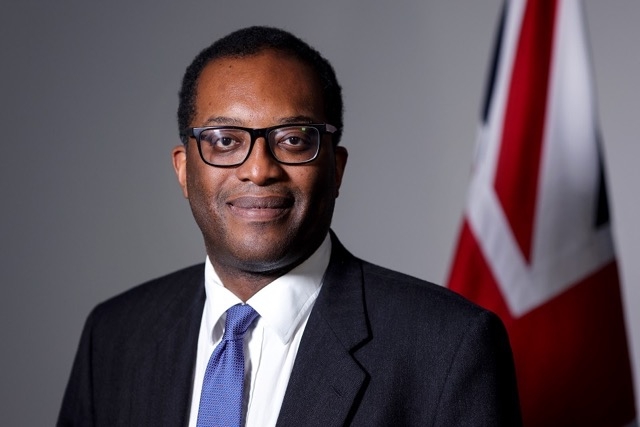Chancellor Kwasi Kwarteng has today abandoned his plan to abolish the 45% top rate of income tax on earnings over £150,000.
He said the U-turn was being made because the planned cut in the top taxpayer’s rate had become a “terrible distraction.”
The move, announced in his recent mini-Budget, had been widely criticised, crucially by senior members of the Conservative Party. Some MPs said it was likely that abolition of the 45p rate would be rejected by Parliament.
The Chancellor said today: “We get it, and we have listened” just hours before he had been expected to defend the plans at the Tory Party conference in Birmingham today.
The tax cut announced in the mini-budget just 10 days ago saw the pound fall to a record low, but it jumped on today’s news, climbing more than a cent to $1.1263, before falling back a little.
Susannah Streeter, senior investment and markets analyst, Hargreaves Lansdown, said: “The pound has lost some of its bounce as the financial markets digest the latest political turmoil to beset the UK.”
She said she believed that Prime Minister Liz Truss has been manipulated into the U-turn after senior Conservatives came out in open revolt at the Treasury’s decision to scrap the 45p tax band for the well off while refusing to rule out cuts to welfare for the poorest.
Ms Streeter said: “This embarrassing climb down will help reassure the markets a little that the more reckless nature of this new administration can be reined in by the Conservative Party.”
Scrapping the top rate of income tax would have benefited the few – around 1% – who are well paid and would have cost around £2bn, pointed out Rachael Griffin, tax and financial planning expert at Quilter.
She said: “It is really the market reaction that has spooked the new government as the pound got hammered and gilt yields spiked. The additional rate tax cut was politically toxic so it seems a U-turn was inevitable.”
Philip Dragoumis, owner of London-based wealth manager, Thera Wealth Management, predicted the U-turn would not see the end of the row.
He said: “Confidence is still lacking in this government and there is a ‘cliff edge’ in a couple of weeks when the Bank of England's emergency bond buying programme comes to an end.”
Nick Lincoln, director at Watford-based Values to Vision Financial Planning, said the U-turn was, “a symbolic move but one that will likely do nothing to counteract the pressure on Sterling.”
He said the “U-turn signals to the world that we are governed by people with no spine.”
That criticism was echoed by Alex Shairp, founder at Glasgow-based Blackmount Private Wealth, who said: “A flip flop doesn't restore confidence.”

